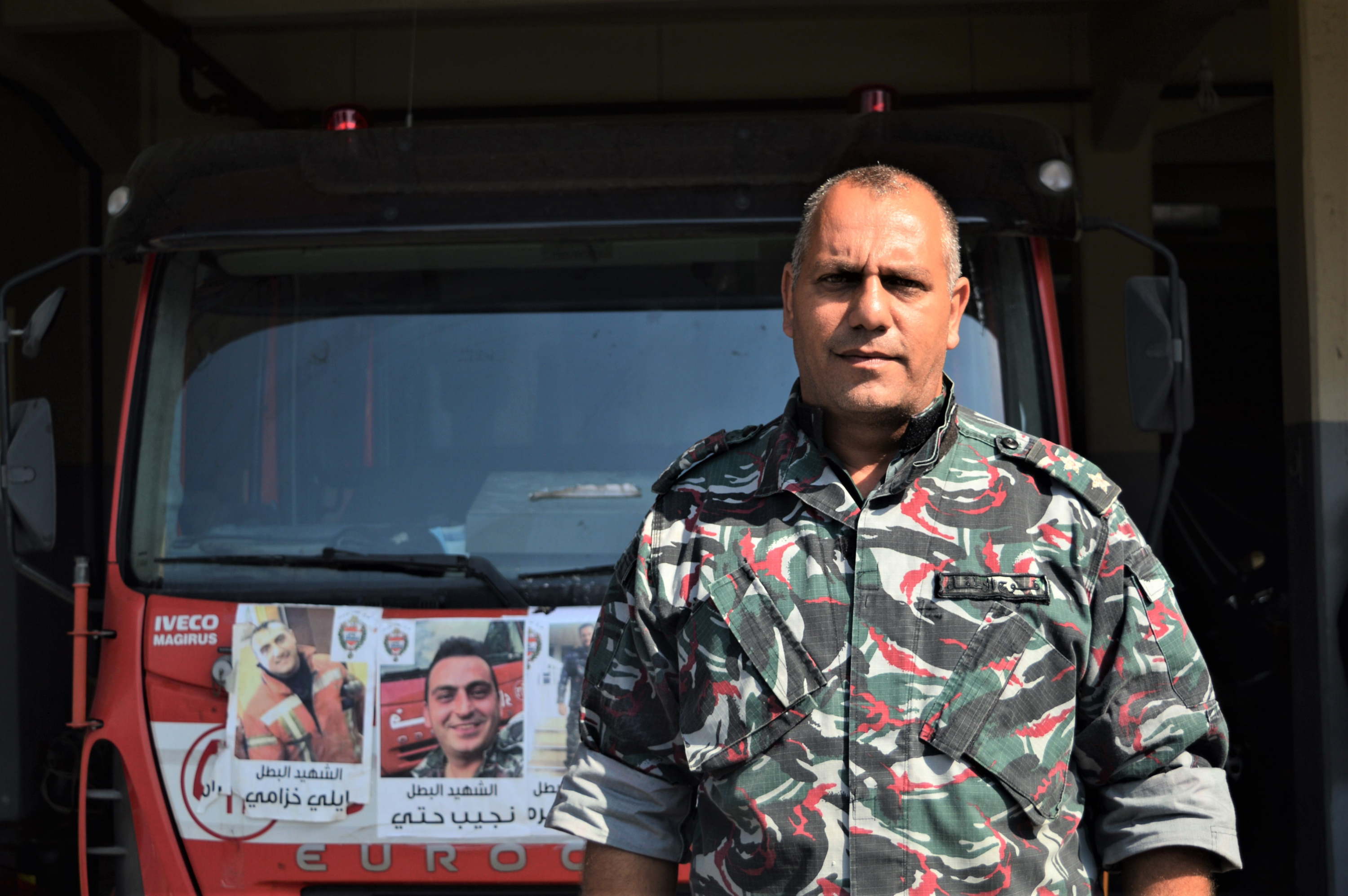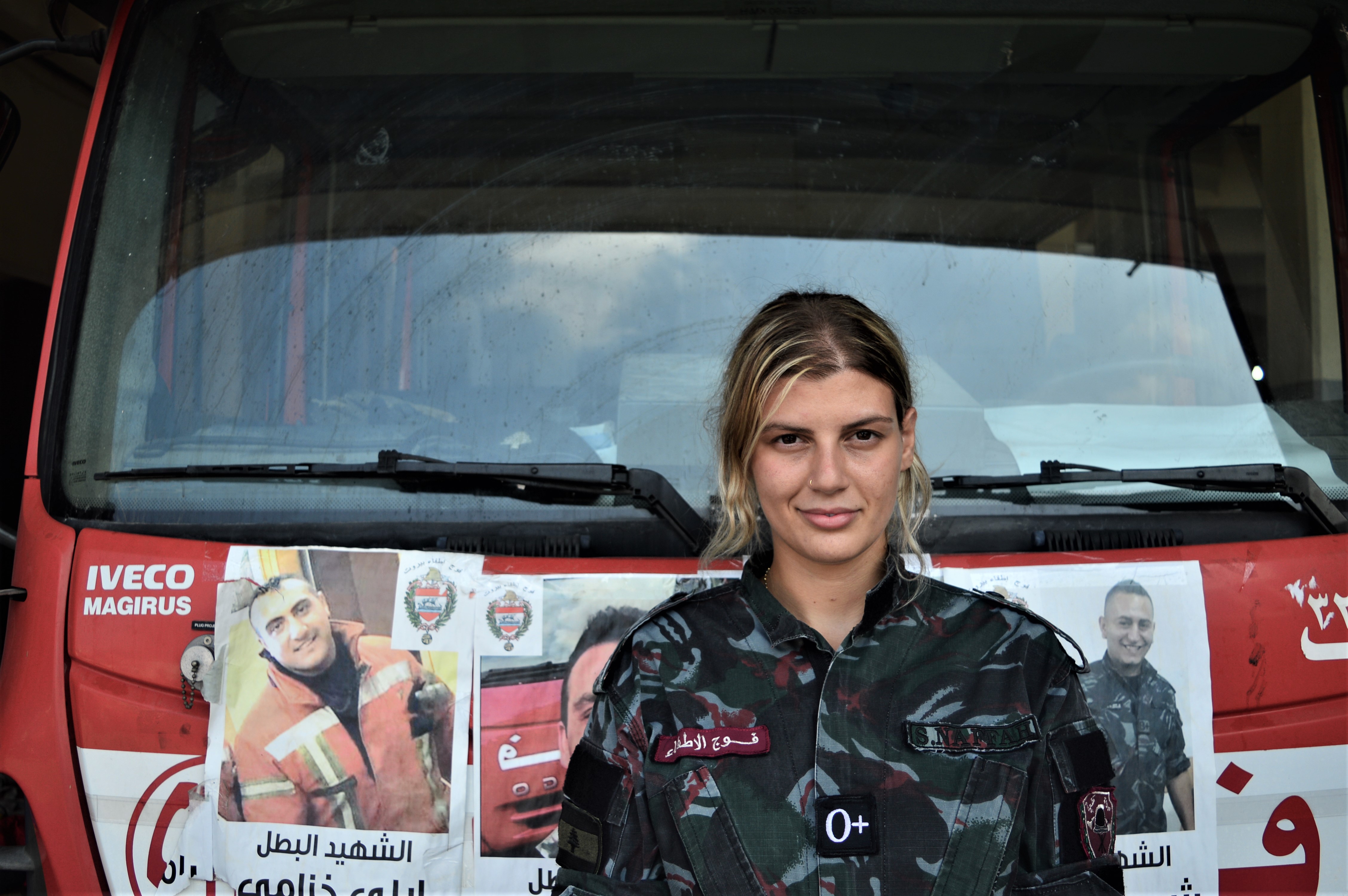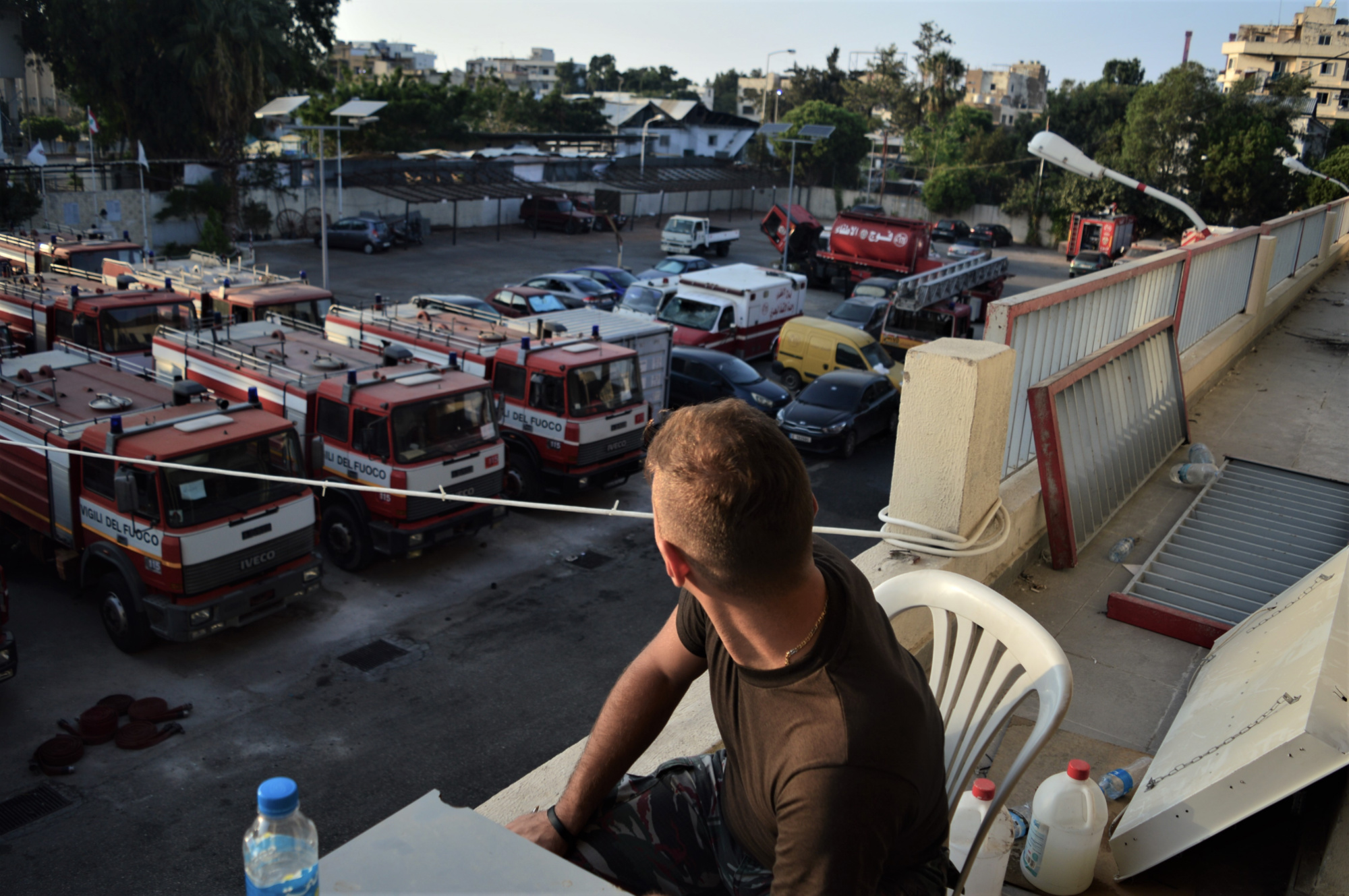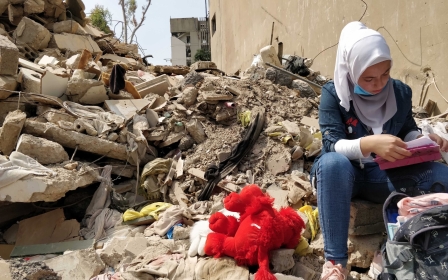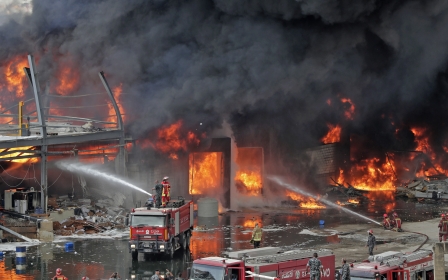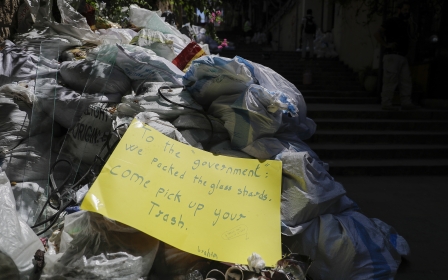'I refuse to lose another man': Lebanese firefighters grieve their fallen comrades

A few metres away from ground zero of the Beirut port explosion, the Karantina fire station is a wreck.
Around the main building, a large scaffolding gives the illusion that reconstruction work is underway, but more than a month after the August blast that killed almost 200 people and injured over 6,500, not much has been fixed.
The two-storey dormitories have no more windows and no more doors. One bed has been left in the middle of the main bedroom, while electric wires dangle from the ceiling. The 135 firefighters now sleep outside of their destroyed barracks – in shifts of 45 - under two large tents donated by a nun.
Even the red trucks parked below are in dire condition. Before the explosion, the station had 31 vehicles. Today, fewer than five are still functional, while the rest, 22, are recent donations from France and Italy, including two ambulances.
“Since 4 August, I have barely left the port. I stay here 24/7,” says 43-year-old First Lieutenant Michel al-Murr.
“People are counting on us to take the danger away from them. This is why we continue. But we hold a lot of anger, we were sent towards a bomb.”
Murr joined the Beirut firefighters when he was 18 years old. He is currently in charge of ground zero, along with engineers from the Beirut municipality, the civil defence and the Lebanese army. Part of his responsibility is to lead the search for the bodies of missing people.
But progress is slow, as the site has been deemed too dangerous.
With winter fast approaching, Murr fears the grain silos that were heavily damaged by the explosion could collapse because of rain or chemical reactions due to the fermentation of the remaining wheat.
“I don’t know if there are still bodies under the rubble, but I refuse to lose another man,” he says.
At the fire station, portraits of the nine firefighters and one paramedic who died on the day of the explosion are everywhere. Their colleagues are still in shock.
“We used to do everything together, it’s very difficult now that they are gone,” says Chadi, a firefighter who has worked at the Karantina station for 25 years.
“If a machine could translate emotions, it would be easier. On a personal and professional level, it is as if we don’t matter,” says Suzanne Naffah, a 25-year-old nurse who joined the fire brigade in 2017.
“We are dealing with monsters. Politicians, government members - they sent us to our death.”
“It opened our eyes about a lot of things,” says another nurse, who prefers not to be named.
Naffah was not on duty when the explosion happened. A few days later, she asked Murr to take her to the site of the blast - for closure, she says. She has also sought the help of a therapist, but cannot imagine quitting her job.
“If we leave, who is going to do the work?” Naffah says in a strong voice.
Other fires
Since the explosion, the Karantina brigades have had little time to rest. Twice, during the second week of September, they were called to put out fires at the port. Neither Murr nor his men or the nurses were sure what was burning.
“The first time, it was fireworks and chemical materials that reacted together with the summer heat,” says Murr. “Two days later, they told us there was a fire in the duty-free warehouse. There was a lot of stuff burning, but we didn’t know what.”
The Lebanese army said at the time that a fire had broken out on 8 September at a warehouse in the duty-free zone where oil and tyres are placed.
The second fire, on 10 September, reportedly started with welding work on a storage building containing motor oil and tyres.
The International Committee of the Red Cross later reported its stocks of humanitarian aid, including food parcels, had burnt in the fire.
For hours, a giant column of black smoke blew over Beirut, causing panic and outrage amongst the population.
Several Lebanese journalists and social media activists suggested the fire could have been a criminal act, as a way to destroy evidence and tamper with the ongoing investigation to determine the causes of the 4 August explosions.
Murr does not like to speculate about politics. When duty calls, he goes. But every time he does, his girlfriend, three sisters, brother and parents are terrified.
“On 10 September, when the fire started, all my family called to ask if I was at the port. I told them no, so that they would not worry. Then when I finished the operation, I told them the truth. They went mad,” he says laughing.
“I’ve been doing this job for 25 years. I’m used to everything. I forgot what fear was a long time ago.”
Although he does not fear for himself, he does fear for his troops.
Chronic lack of equipment
Murr recalls an incident in 2015 when two firefighters died during an operation at a Beirut paper factory. According to him, his colleagues died due to a lack of appropriate equipment.
“We do not have walkie-talkies to communicate. We have to use our personal cell phones. We also do not have PASS devices (alarms firefighters wear to signal distress) or lifelines. It’s been years that we have been asking for those,” he says.
Insufficient equipment, poor training and the limited human resources plaguing the firefighters made the headlines in October 2019, when wildfires were devastating southern Lebanon.
The fire brigades intervened alongside the civil defence teams, composed mostly of volunteers. Civilians joined the efforts but stopping the flames took three days, as several helicopters were not working due to a lack of maintenance. Cyprus and Jordan had to send water planes.
Like the rest of the Lebanese population, Lebanon’s firefighters are suffering from the economic crisis. In less than a year, the local currency lost 80 percent of its value – plunging the country into spiralling hyperinflation.
At the Karantina fire brigade, salaries are still the same: 2.2 million Lebanese pounds (LBP) a month for a young recruit and 4 million for a lieutenant like Murr. A year ago, these sums were worth, respectively, $1,460 and $2,650. As of mid-September, their value dropped to $280 and $510 on the black market.
Some firefighters try to work a second job to make ends meet, but most do not have the time.
Last week, a group of firefighters organised a protest in front of the Beirut municipality to ask for better retirement conditions as well as state pensions for the families of the firefighters who died while on duty on 4 August.
“I just hope we get equipment and training to be able to better face upcoming danger,” says Murr.
Middle East Eye propose une couverture et une analyse indépendantes et incomparables du Moyen-Orient, de l’Afrique du Nord et d’autres régions du monde. Pour en savoir plus sur la reprise de ce contenu et les frais qui s’appliquent, veuillez remplir ce formulaire [en anglais]. Pour en savoir plus sur MEE, cliquez ici [en anglais].


